Filter by
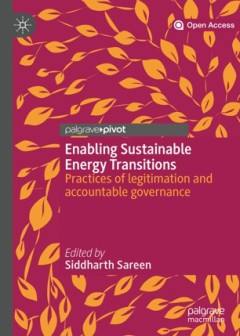
Enabling sustainable energy transitions : practices of legitimation and accou…
This open access book reframes sustainable energy transitions as being a matter of resolving accountability crises. It demonstrates how the empirical study of several practices of legitimation can analytically deconstruct energy transitions, and presents a typology of these practices to help determine whether energy transitions contribute to sustainability. The real-world challenge of climat…
- Edition
- -
- ISBN/ISSN
- 9783030268916
- Collation
- xxi, 168p. : ill.
- Series Title
- -
- Call Number
- 333.79 ENA e
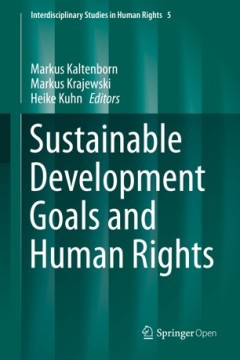
Sustainable development goals and human rights
This open access book analyses the interplay of sustainable development and human rights from different perspectives including fight against poverty, health, gender equality, working conditions, climate change and the role of private actors. Each aspect is addressed from a more human rights-focused angle and a development-policy angle. This allows comparisons between the different approaches bu…
- Edition
- -
- ISBN/ISSN
- 9783030304690
- Collation
- xv, 239p. : ill.
- Series Title
- -
- Call Number
- 304.2 SUS s
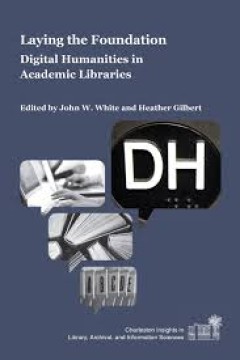
Laying the foundation: digital humanities in academic libraries
Laying the Foundation: Digital Humanities in Academic Libraries examines the library’s role in the development, implementation, and instruction of successful digital humanities projects. It pays special attention to the critical role of librarians in building sustainable programs. It also examines how libraries can support the use of digital scholarship tools and techniques in undergraduate e…
- Edition
- -
- ISBN/ISSN
- 9781557537393
- Collation
- xiv, 229 pages : illustrations ; 23 cm.
- Series Title
- Charleston insights in library, archival, and information sciences
- Call Number
- 027.70973 WHI l
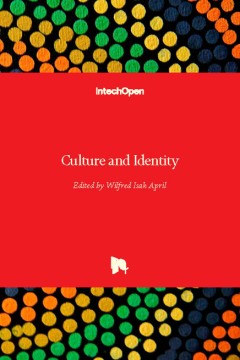
Culture and identity
This book is a wonderful celebration of culture and identity, especially from the cultural lens of the various authors' nation of origin. Culture is viewed as a collective programming of the mind and is at times compared to an onion?the more you peel off the layers, the more you get to learn about the values, beliefs, and norms of the respective societies. As complex as the onion diagram is, an…
- Edition
- -
- ISBN/ISSN
- 9781838813154
- Collation
- 122 p.; 23 cm.
- Series Title
- -
- Call Number
- 144.2116 CUL c

Crisis management - theory and practice
Crisis management is an interdisciplinary subject field represented by theoretical problems, practical activity, people management and the art of crisis situation solving. Overall, the studies that this publication contains are to provide an overview of the state of the art mainly focused on crisis management cycle represented by certain phases and steps. Topics include also lessons learned fro…
- Edition
- -
- ISBN/ISSN
- 9781789232349
- Collation
- 268 p.; 22 cm.
- Series Title
- -
- Call Number
- 144.2116 CRI c
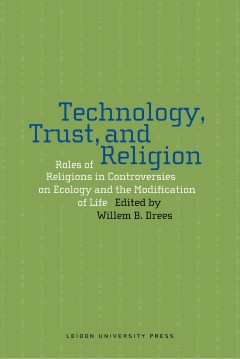
Technology, trust, and religion : roles of religions in controversies on ecol…
What does it mean to be human in a world of technology? What could be the role of religion in responding to the ecological crisis? Should we be concerned about the modification of food, and even of ourselves? Who do we trust to make decisions regarding our common future? What do we use our technology for? These are not questions for experts only. How can the wider public be involved? Do experts…
- Edition
- -
- ISBN/ISSN
- 9789087280598
- Collation
- 316p. : ill.
- Series Title
- -
- Call Number
- 200 TEC t
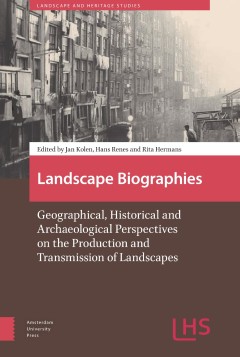
Landscape biographies : geographical, historical and archaeological perspecti…
Landscape Biographies explores the long, complex histories of landscapes from personal and social perspectives. Twenty geographers, archaeologists, historians, and anthropologists investigate the diverse ways in which landscapes and monuments have been constructed, transmitted, and transformed from prehistory to the present, from Manhattan to Shanghai, Iceland to Portugal, England to Estonia.
- Edition
- -
- ISBN/ISSN
- 9789089644725
- Collation
- 437p. : ill.
- Series Title
- -
- Call Number
- 304.2 LAN l
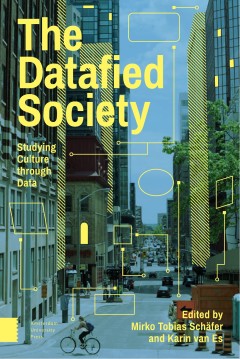
The datafied society : studying culture through data
As more and more aspects of everyday life are turned into machine-readable data, researchers are provided with rich resources for researching society. The novel methods and innovative tools to work with this data not only require new knowledge and skills, but also raise issues concerning the practices of investigation and publication. This book critically reflects on the role of data in academi…
- Edition
- -
- ISBN/ISSN
- 9789048531011
- Collation
- 267p. : ill.
- Series Title
- -
- Call Number
- 302.2 DAT d
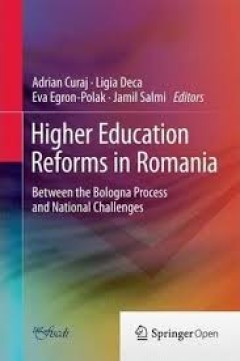
Higher education reforms in Romania
Romania is an active player in various international higher education areas, while undergoing a series of higher education reforms within its national framework. The Higher Education Evidence Based Policy Making: a necessary premise for progress in Romania project was implemented by the Executive Agency for Higher Education, Research, Development and Innovation Funding (UEFISCDI) in the timefra…
- Edition
- -
- ISBN/ISSN
- 9783319080536
- Collation
- pages cm
- Series Title
- -
- Call Number
- 370 CUR h
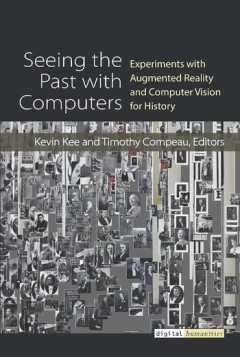
Seeing the past with computers : experiments with augmented reality and compu…
Recent developments in computer technology are providing historians with new ways to see—and seek to hear, touch, or smell—traces of the past. Place-based augmented reality applications are an increasingly common feature at heritage sites and museums, allowing historians to create immersive, multifaceted learning experiences. Now that computer vision can be directed at the past, research …
- Edition
- -
- ISBN/ISSN
- 9780472131112
- Collation
- vi, 247p. : ill.
- Series Title
- -
- Call Number
- 001.30285 SEE s
 Computer Science, Information & General Works
Computer Science, Information & General Works  Philosophy & Psychology
Philosophy & Psychology  Religion
Religion  Social Sciences
Social Sciences  Language
Language  Pure Science
Pure Science  Applied Sciences
Applied Sciences  Art & Recreation
Art & Recreation  Literature
Literature  History & Geography
History & Geography